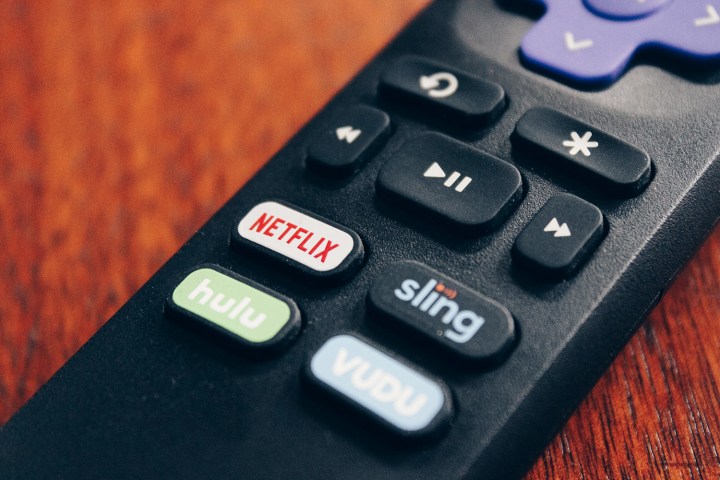
Every company wants to own a streaming service.
While there’s long been a solid bench of competitors for Netflix (Hulu and Amazon Prime to name a couple), a horde of new players has entered the fight. They include entertainment titans like Disney, AT&T (which now owns both Time Warner Media and DirectTV), and even tech giants like Facebook and Apple, which is rumored to be planning a global rollout of its new TV service for 2019.
Streaming has become a zero-sum game.
You’d think all this competition would be good for consumers, right? If you have varied tastes, apparently not. As the recent back and forth between Netflix and Disney has illustrated – including last week’s cancellation of Luke Cage — streaming is becoming a zero-sum game. Cordial relationships between streaming services and Hollywood studios have morphed into an all-out war for content distribution rights where everyone refuses to share.
The Netflix effect
In the early days of on-demand streaming (just five or six years ago, kids), TV studios were happy to license prior seasons of shows to Netflix and others. Like all good relationships, it was a reciprocal give and take. Netflix and company landed tons of reruns and older movies, while TV studios and distributors gained a new source of revenue and access to younger viewers.

Breaking Bad, The Walking Dead, and many other series benefited from the Netflix effect, as a growing number of viewers discovered new shows online, then followed them to traditional pay TV. Hulu was seemingly created as a direct reaction to this paradigm, as co-owners Comcast, Disney, and Fox looked for ways to gain viewers for their respective series.
Virtually every premium channel has released a stand-alone subscription app.
Then the unexpected happened: Netflix got really big, really fast. Additionally, around the same time that HBO execs and others were planning their own streaming portals to counteract the growing Netflix monster, Netflix realized its reliance on licensing TV shows and movies was a big weakness, especially as the company began its quest to expand into virtually every country.
To insulate itself and become more self-reliant, Netflix embarked on a spending bonanza, ramping up to as much as $13 billion in 2018 on original content, which is more than any other similar entity. Meanwhile, virtually every premium channel has released its own stand-alone subscription app, including HBO (HBO Now), Showtime (Showtime), Starz (Starz Play), and even CBS (All Access), alongside a font of other on-demand services. That’s not to mention the rush of live TV streamers, which includes a mile-long list of contenders.
Streaming, streaming everywhere
For a time, these services existed as an a la carte menu filled with attractive and meaty options. Most people couldn’t afford everything, but two or three (or four, or five) was enough for a diverse diet of TV binging, and the total price still beat cable and satellite.
As more and more entities enter the fray, however, the streaming world is becoming increasingly partitioned, and streaming services more specialized. The all-in-one (or even most-in-one) streaming service with content from multiple sources is going extinct. There’s more to choose from, but each choice is increasingly focused on its own content.

Take Disney’s soon-to-launch Disney Play streaming service. Before its announcement, Disney and Netflix had a blooming partnership that landed Netflix viewers all of Disney’s Marvel and Star Wars movies, as well as a vibrant collection of series starring Marvel’s street-level heroes. Yet by Disney Play’s launch in 2019, Disney is expected to have pulled the last of its movies. Two high-profile Netflix-Marvel collaborations have been canceled in just the last week, including Iron Fist and, more surprisingly, Luke Cage.
The latter was reportedly canceled due to “creative differences,” but according to rumors, those differences may include a lack of agreement on how Marvel and Netflix will collaborate in the future. This hasn’t yet touched other related shows; Daredevil just premiered its third season, while Jessica Jones and The Punisher are reportedly working on their third and second seasons respectively. Still, the news doesn’t bode well.
As more entities enter the fray, the streaming world is becoming increasingly divided.
Similarly, AT&T’s plans for a Netflix-style streaming service with HBO at the forefront (following its recent acquisition of Time Warner Media) is expected to have its own, far-reaching impacts on competing streamers. Even before the merger, HBO announced plans to end its licensing relationship with Amazon. The new list of AT&T owned properties includes DC Entertainment, Warner Bros. Pictures, Warner Bros. TV, The CW (50 percent), Cartoon Network, CNN, TBS, TNT, TCM, New Line Cinema, and many more.
How many of those properties on Netflix and other services can we expect to be removed soon? Only time will tell. What is certain is that many of the on-demand streaming services you know and love today will be drastically different moving forward as more and more conglomerates seek to create their own online portals to peddle their wares.
The glory days of streaming, it seems, are coming to an end.
If only we could find an entertainment entity with a wide variety of TV and movies from multiple studios all in one place. It could include live and on-demand programming, perhaps even a DVR to store older shows and skip commercials. That would surely be revolutionary — but what could we possibly call a service like that?
Updated 10-24-2018: This post has been updated with news of Apple’s rumored global launch of its new streaming service.


